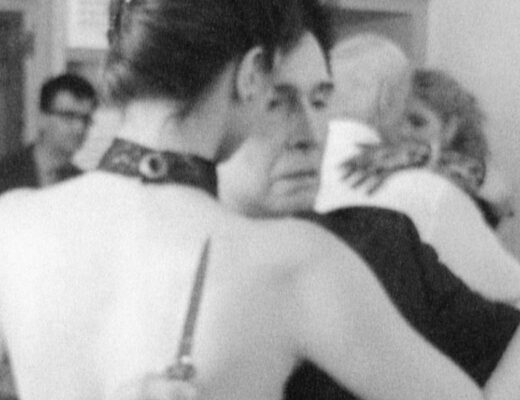Separation is yet another slog from director William Brent Bell, a logic-less and unscary bit of low-bar horror filmmaking.
Director William Brent Bell has been responsible for some of the schlockier horror flicks of the 21st century, including 2006’s video game-inspired Stay Alive (“You die in the game, you die for real!”) and 2012’s found-footage monstrosity The Devil Inside. Bell has a talent for taking ludicrous premises and sucking the potential fun out of them through an over-reliance on misplaced solemnity. 2016’s The Boy remains the director’s best film by virtue of an end-of-film plot twist that was so utterly ridiculous that Bell’s straight-faced approach actually served to heighten its sheer insanity. Such is not the case with Separation, which finds the filmmaker working in a mode that can best be described as narcotized Cronenberg minus the body horror. Shades of The Brood can be found in the overarching plot, as a young girl named Jenny (Violet McGraw) is caught in the crossfire between warring parents Jeff (Rupert Friend) and Maggie (Mamie Gummer). Divorce and custody battles are taking their toll, with Maggie’s sudden death proving a breaking point, after which Jenny retreats into baby talk and begins communicating with the possible spirit of her mother. Jeff, meanwhile, is a comic-book creator and full-time man-child who has hit a professional dry patch. His last comic concerned The Grizzly Kin, a macabre family of misfits whose character design resembles second-rate knock-offs of The Nightmare Before Christmas‘s various ghouls and goblins. But it isn’t long before Jeff is plagued by visions of his creations coming to life, contorting their limbs with bone-crunching intensity and chasing Jeff around the house because…well, let me get back to you on that.
Separation is a standard-issue custody drama with a supernatural coat of paint, but no real thought has been given — by Bell, certainly, but also by first-time screenwriters Josh Braun and Nick Amadeus — as to how to use the imagery in a thematically thoughtful or meaningful way. The spirit of Maggie has the look of a Guy Fawkes mask preparing for an audition of RuPaul’s Drag Race, but…why? Without any sensical explanation for such a design, we’re left to assume it’s so that she can both prove her love and scare the shit out of her kid at the same time? There’s also an implication that Maggie wants to kill her child so that they can be together, which paints her in an offensive light that the filmmakers seem to weirdly relish in. In fact, the film’s portrayal of all of its female characters is profoundly problematic, as they either want to make Jeff suffer for selfish reasons or love him in ways that rob them of any agency. Jeff, for his part, is a bland nothing, and one wonders why anyone is getting so worked up about a guy who still looks and dresses like the lost member of Fall Out Boy. Bell, meanwhile, takes care to employ the most rote and obvious approaches in creating scares, such as slapping on a red filter while simultaneously employing slow motion to half-assed green screen backdrops of twisting branches and burning embers. For an R-rated horror feature, there’s also no gore to speak of, nothing the least bit menacing or unsettling, which makes one wonder why they didn’t just remove a few F-bombs here and there and market this to an undiscerning teen crowd that might actually give this thing a few quick bucks. But even they would likely be bored stiff by these proceedings, which endure to a punishing 107 minutes. There are countless scenes that could be easily excised, including Bell’s obsession with showing characters traveling from Point A to Point B, while rushing the dramatic beats to a degree that the story barely makes any sense. It’s also terribly edited, with scenes ending mid-sentence or beginning three beats too early. In truth, the only separation that exists here is the vast one between good and bad filmmaking, and Separation falls decidedly on the side of the latter.







